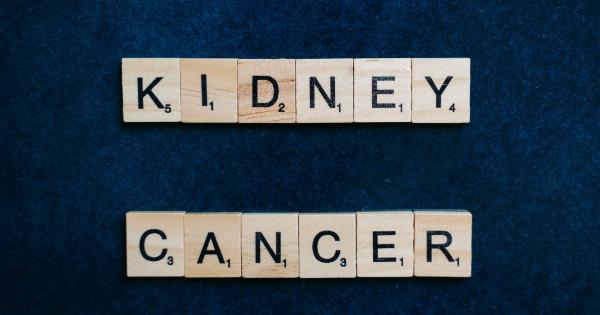Renal disease, also known as kidney disease, affects millions of people worldwide. The kidneys are an important part of the body, responsible for filtering waste and excess fluids from the blood.
When the kidneys are damaged, they may not function properly, leading to a buildup of harmful substances in the blood. This can cause a range of health problems, including an increased risk of cancer.
What is Renal Disease?
Renal disease is a condition that affects the kidneys. It can be caused by a number of factors, including diabetes, high blood pressure, infections, and genetic conditions. There are two main types of renal disease: acute and chronic.
Acute renal disease is a sudden, short-term condition that can be caused by a sudden injury or illness. Chronic renal disease, on the other hand, is a long-term condition that can develop over many years.
How Can Renal Disease Increase the Risk of Cancer?
Individuals with renal disease have an increased risk of developing cancer. This is thought to be because the kidneys play an important role in filtering harmful substances from the blood.
When the kidneys are not functioning properly, these substances can build up in the body, increasing the risk of cancer.
One particular type of cancer that is more common in individuals with renal disease is renal cell carcinoma. This is a type of kidney cancer that originates in the cells that line the small tubes within the kidney.
It is not clear why renal cell carcinoma is more common in individuals with renal disease, but it is thought to be related to the long-term damage to the kidneys.
Preventing Cancer in those with Renal Disease
While the risk of cancer in individuals with renal disease cannot be eliminated entirely, there are steps that can be taken to reduce the risk. One of the most important steps is to manage the underlying cause of the renal disease.
For example, controlling diabetes or high blood pressure can help to prevent further damage to the kidneys and reduce the risk of cancer.
Individuals with renal disease should also make sure to follow a healthy lifestyle that includes a balanced diet, regular exercise, and not smoking.
Quitting smoking is particularly important, as smoking has been shown to increase the risk of cancer in general, as well as the risk of renal cell carcinoma specifically.
Treatment Options for Cancer in those with Renal Disease
If an individual with renal disease does develop cancer, there are a range of treatment options available.
The best treatment option will depend on a number of factors, including the type and stage of cancer, as well as the individual’s overall health. Some of the treatment options that may be available include:.
- Surgery – this involves removing the cancerous cells or tumors from the kidney. In some cases, the entire kidney may need to be removed.
- Chemotherapy – this involves using drugs to kill cancer cells. Chemotherapy may be used before or after surgery, depending on the individual’s situation.
- Radiotherapy – this involves using high-energy radiation to kill cancer cells. Radiotherapy may be used to treat cancer that has spread beyond the kidney.
Conclusion
Renal disease is a common condition that can increase the risk of cancer. Individuals with renal disease should take steps to manage the underlying cause of the condition and follow a healthy lifestyle to reduce the risk of cancer.
If cancer does develop, there are a range of treatment options available.






























